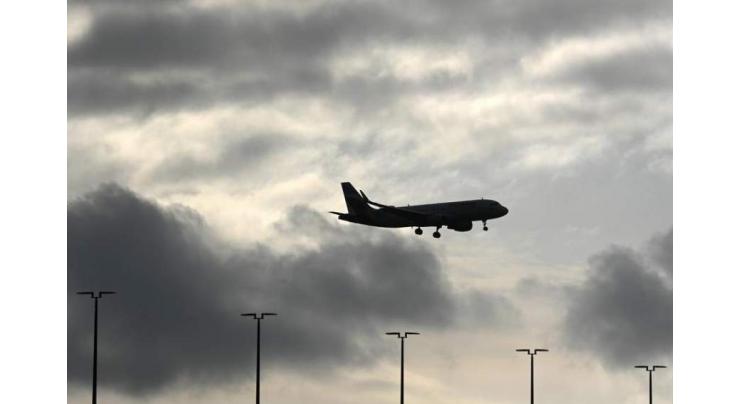
Protectionism, Taxes, Fuel: The High Cost Of Air Travel In Africa
Mohammad Ali (@ChaudhryMAli88) Published March 07, 2024 | 06:05 PM

Travelling 1,000 kilometres (620 miles) by air between two capitals on the same continent does not seem like a challenge. But it can be one in Africa
Addis Ababa, (APP - UrduPoint / Pakistan Point News - 7th Mar, 2024) Travelling 1,000 kilometres (620 miles) by air between two capitals on the same continent does not seem like a challenge. But it can be one in Africa.
Take Libreville and Bangui for instance. The journey takes a minimum of nine hours, requires passengers to change planes and shell out $1,000 -- an example of the challenges facing Africa's aviation sector because of high taxes and protectionist policies.
In comparison, a flight between Paris and Madrid -- which crosses an equivalent distance -- takes two hours and costs five times less.
Unlike Europe, "travel on the continent is very difficult", said Moses Munga, a 27-year-old construction consultant on his way to Ghana from Nairobi.
Like Munga, who told AFP that work took him to West Africa several times a year, civil engineer Ahmed Mekewi said he was a frequent business traveller.
But he confided: "I would have difficulty travelling on my own.
"
"The cost of travelling in Africa is very challenging," the 29-year-old said.
Unlike Europe, which liberalised its aviation sector in the 1990s, Africa does not have "a unified... market", an expert in the sector told AFP.
"In Europe, Air France for example can make as many flights as it wants, to Germany, Belgium, Spain or Portugal. This freedom... does not exist within Africa" for African carriers, he said, requesting anonymity because of the nature of his work.
Restricted traffic rights granted by African governments to airlines limit the number of direct routes and the frequency of flights, and make journeys longer across the 54-nation continent, he added.
According to a study conducted in 2021 by the International Air Transport Association (IATA) for the African Union, out of the 1,431 possible connections between each of the bloc's member states, only 19 percent had a weekly direct flight.
Related Topics
Recent Stories

Currency Rate In Pakistan - Dollar, Euro, Pound, Riyal Rates On 28 April 2024

Today Gold Rate in Pakistan 28 April 2024

Fresh wave of rainfall in AJK continues for the second consecutive day

Babar, bowlers help Pakistan level series 2-2 against New Zealand

Attack in restive Chilean province leaves three police officers dead

PM, Saudi Royal court advisor discuss ways to boost economic ties

England clinch third successive Women's Six Nations Grand Slam

DC Bahawalnagar leads fight for fair bread prices

Sheffield Utd relegated from Premier League

02 proclaimed offenders arrested by Wah Police

Pakistan level T20I series with nine-run victory over New Zealand

Minister meets Chinese Consul General, discusses bilateral cooperation, Chinese ..
More Stories From World
-
Tennis: ATP/WTA Madrid Open results
16 minutes ago -
PM calls upon bridging gap between Global South, North in health sector
55 minutes ago -
One man dead after migrant boat sinks off Greek island
55 minutes ago -
Schools closed, warnings issued as Asia swelters in extreme heatwave
56 minutes ago -
Russian journalist held over videos for late dissident Navalny
2 hours ago -
Pope holds mass in Venice's St Mark's, first trip in months
2 hours ago
-
Rare footage captures wild giant pandas mating in NW China
2 hours ago -
Thai king approves new finance minister for cabinet reshuffle
2 hours ago -
China's online literature users exceed 500 million
2 hours ago -
Philippines suspends in-person school due to heat, jeepney strike
3 hours ago -
Saudi team claims top Prize at Harvard Health Hackathon for innovative Cancer Navigation Platform
3 hours ago -
6.5 magnitude earthquake strikes in sea off Indonesia's Java island
3 hours ago